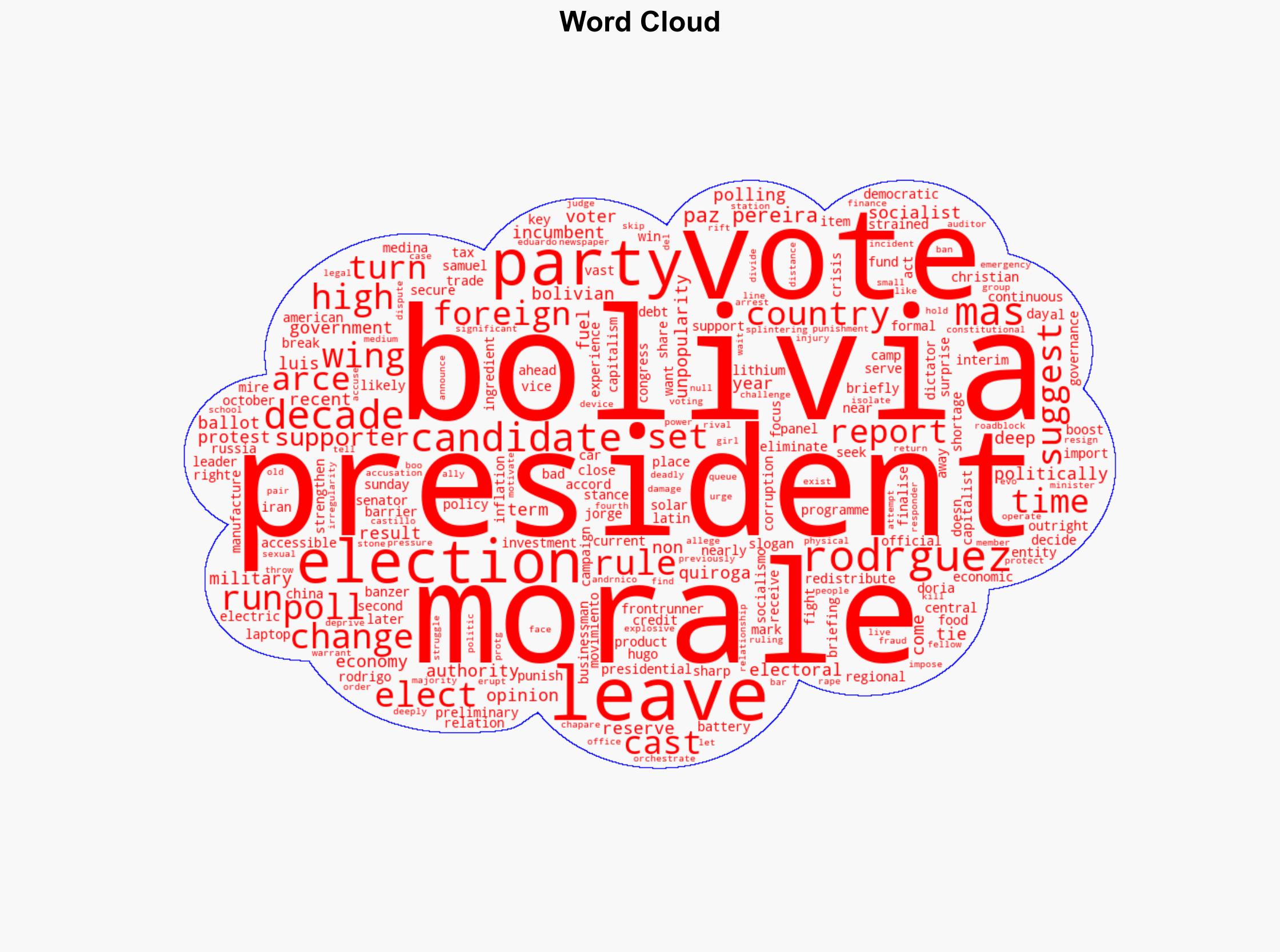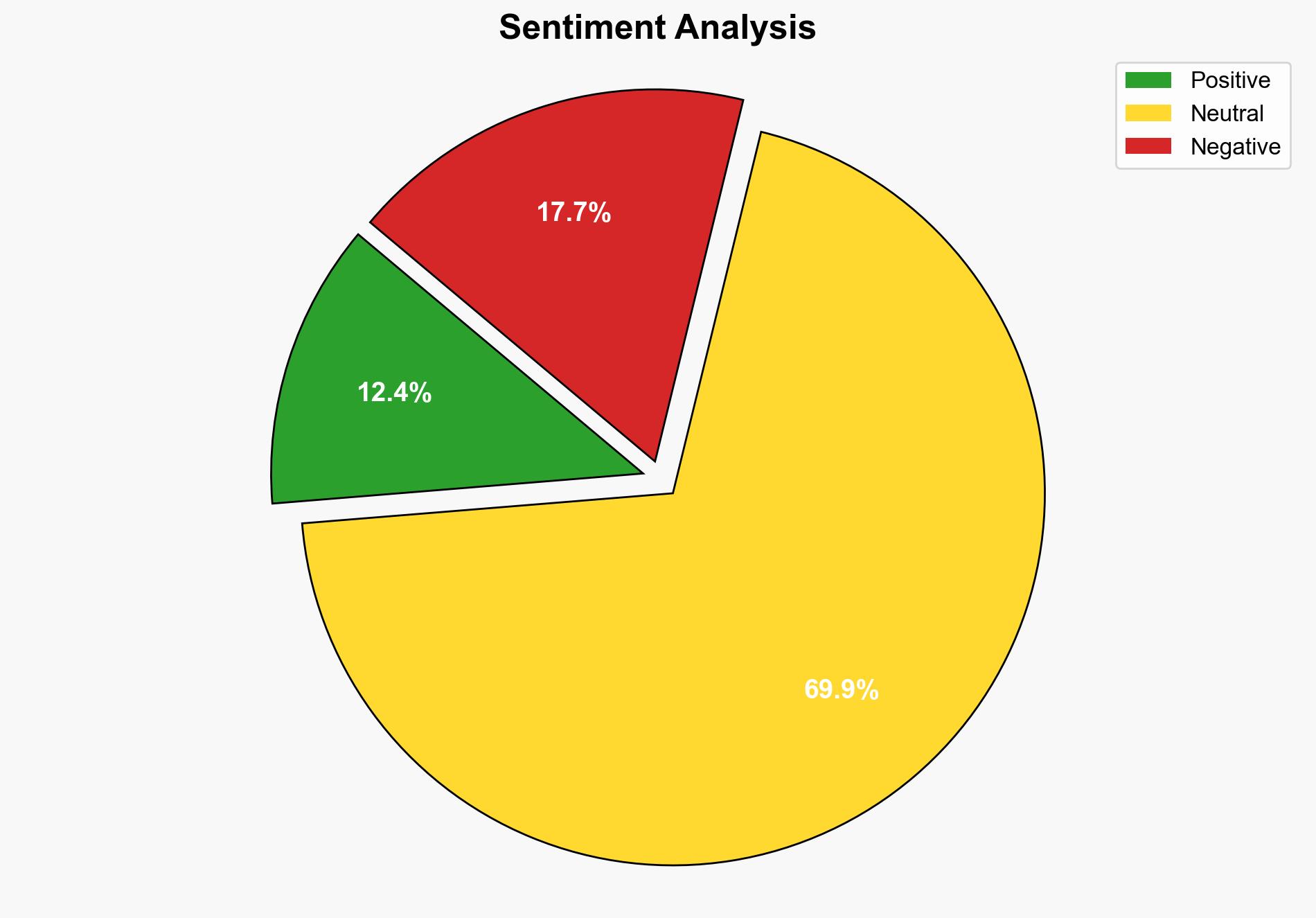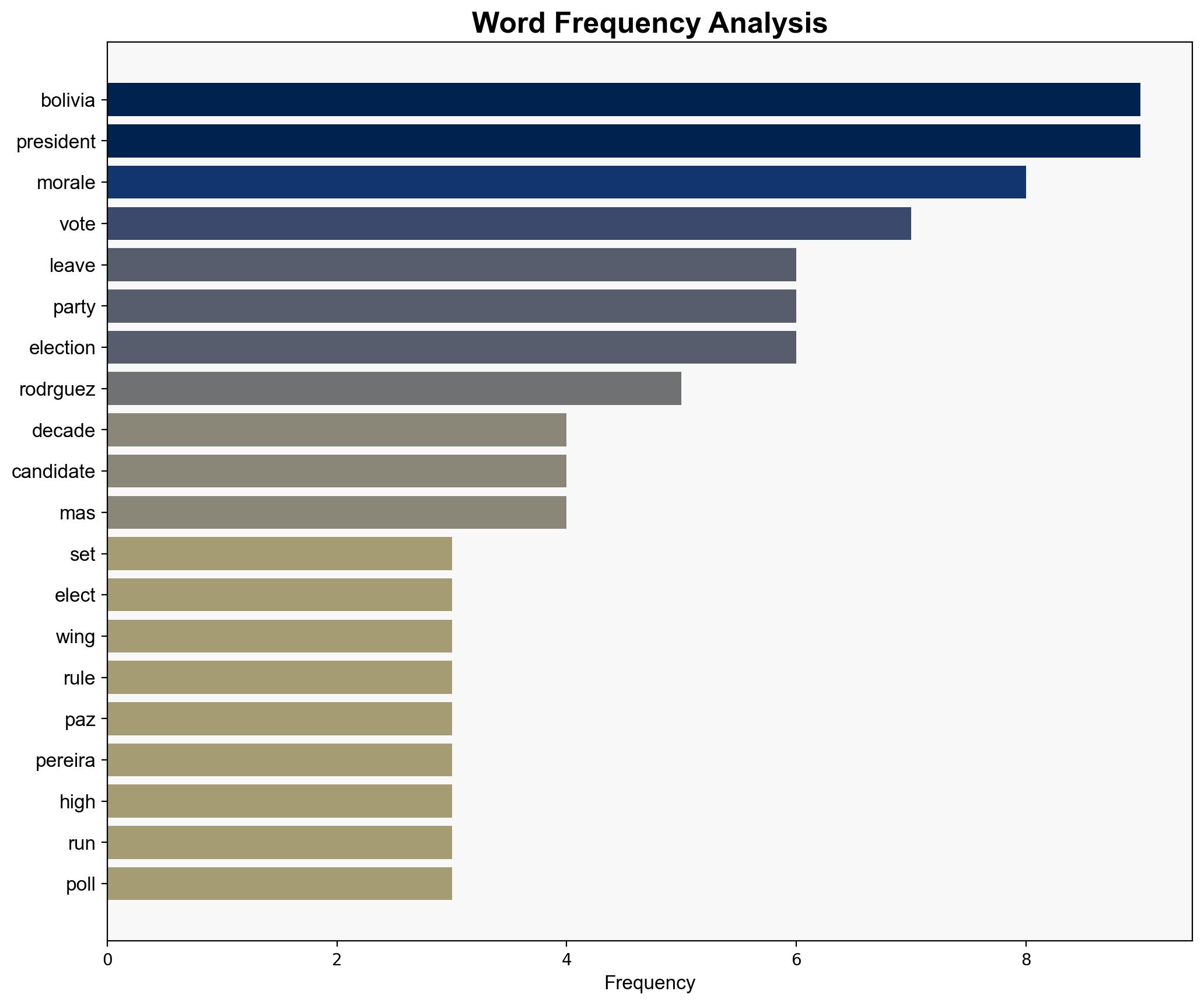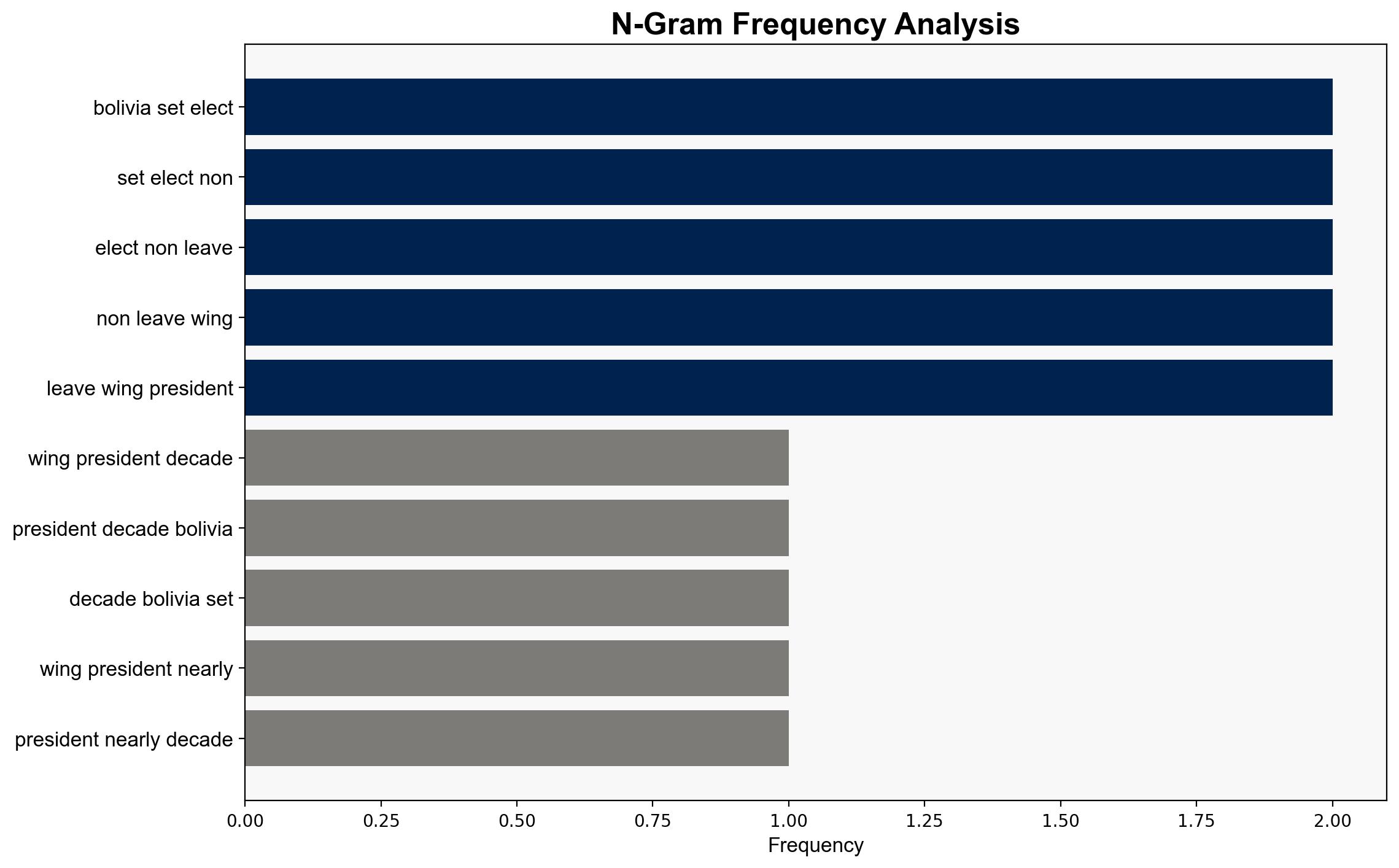Bolivia set to elect first non-left wing president in two decades – BBC News
Published on: 2025-08-18
Intelligence Report: Bolivia set to elect first non-left wing president in two decades – BBC News
1. BLUF (Bottom Line Up Front)
Bolivia is on the verge of electing a non-left wing president for the first time in two decades, potentially marking a significant shift in its political and economic landscape. The most supported hypothesis suggests that this shift is driven by public dissatisfaction with the incumbent socialist party’s economic management. Confidence level: Moderate. Recommended action: Monitor post-election developments closely to assess the new administration’s policy direction and its implications for regional stability and foreign investment.
2. Competing Hypotheses
1. **Hypothesis 1**: The election of a non-left wing president is primarily driven by economic dissatisfaction and a desire for policy change among Bolivian voters. This hypothesis is supported by reports of economic crises, shortages, and high inflation under the socialist government, as well as the popularity of candidates advocating for capitalist reforms.
2. **Hypothesis 2**: The shift in political power is a result of strategic manipulation by external actors seeking to influence Bolivia’s vast lithium reserves and align the country with Western economic interests. This hypothesis considers the geopolitical significance of Bolivia’s resources and recent strained relations with countries like China and Russia.
3. Key Assumptions and Red Flags
– **Assumptions**:
– Hypothesis 1 assumes that economic factors are the primary motivators for voter behavior, potentially overlooking cultural or social influences.
– Hypothesis 2 assumes significant external influence without concrete evidence of interference.
– **Red Flags**:
– Reports of violence and electoral manipulation could indicate attempts to destabilize the election process.
– The presence of explosive devices at polling stations suggests potential threats to electoral integrity.
– **Blind Spots**:
– Limited information on the role of social media and misinformation campaigns in shaping public opinion.
– Lack of detailed analysis on the internal dynamics within the socialist party and its impact on the election.
4. Implications and Strategic Risks
– **Economic**: A shift towards capitalist policies could attract foreign investment but may also lead to social unrest if not managed inclusively.
– **Geopolitical**: Realignment of Bolivia’s foreign policy could alter regional power dynamics, especially concerning relations with China and Russia.
– **Social**: Potential for increased polarization and civil unrest if the election results are contested or perceived as illegitimate.
5. Recommendations and Outlook
- Monitor the transition process for signs of instability or external interference.
- Engage with regional partners to support democratic processes and economic reforms.
- Scenario Projections:
– **Best Case**: Smooth transition with economic reforms leading to growth and stability.
– **Worst Case**: Electoral disputes lead to prolonged unrest and economic decline.
– **Most Likely**: Gradual policy shifts with intermittent social challenges.
6. Key Individuals and Entities
– Rodrigo Paz Pereira
– Jorge Quiroga
– Samuel Doria Medina
– Luis Arce
– Evo Morales
– Eduardo del Castillo
– Andrónico Rodríguez
7. Thematic Tags
national security threats, economic policy, geopolitical shifts, electoral integrity




